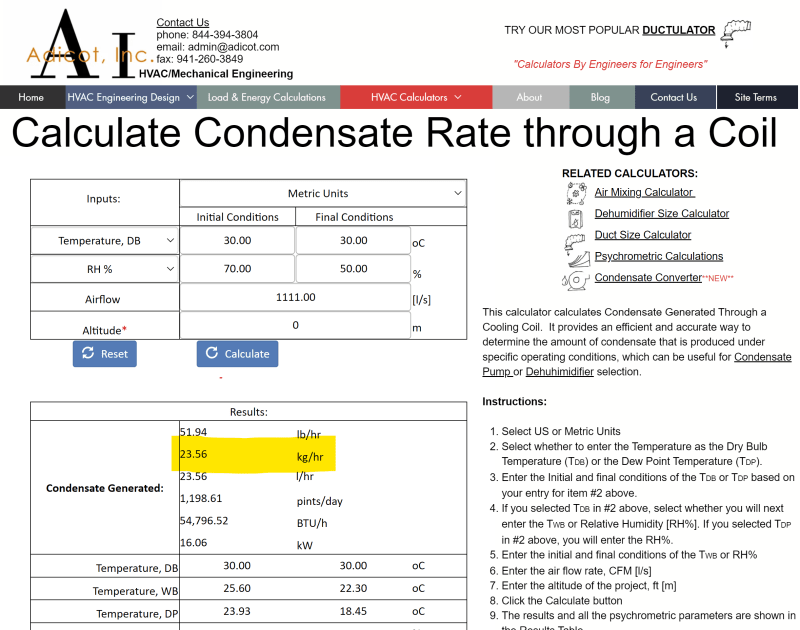I am seeking for the engineering equation that will tell me what size dehumidifier will be most suited for the room in question. I am appreciative of the reaction.
The problem with the world is that intelligent people are full of doubts, while stupid ones are full of confidence.
-Charles Bukowski-
The problem with the world is that intelligent people are full of doubts, while stupid ones are full of confidence.
-Charles Bukowski-

